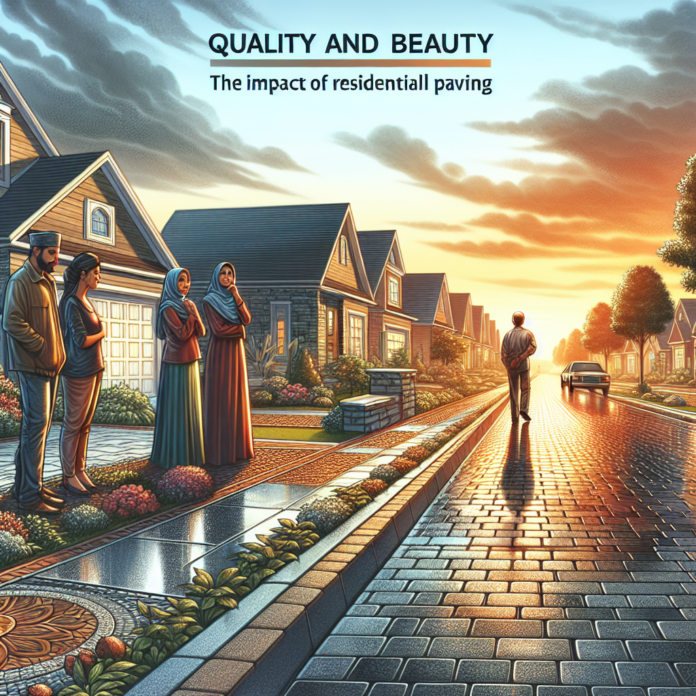When designing or renovating a home, the focus is often on the house itself. It’s easy to overlook the importance of the exterior surroundings, such as the driveway and courtyard. However, incorporating residential paving into your home design can significantly enhance not only the beauty but also the quality of your property. Quality residential paving is durable, aesthetically pleasing, and can provide an economic boost. Residential paving includes driveways, walkways, patios, and any other paved surface in a residential setting.
The Impact on Design and Beauty
Quality residential paving can significantly amplify a property’s visual appeal. It allows homeowners to maintain a unified and harmonious design both inside and outside the house. Not only does this simultaneously upgrade the overall aesthetic, but also creates a gracious welcome for guests upon entering the residence.
There’s a wide variety of paving materials and designs available, ranging from concrete, asphalt, natural stone, brick to pavers made from clay or other materials. With the right selection of paving materials, homeowners can achieve any look or style they want, whether it be a modern minimalist design or a classic, rustic appeal.
The Impact on Functionality and Durability
Good quality paving isn’t only about aesthetics. It also carries significance in terms of functionality and durability. Different materials have different levels of durability, maintenance requirements and resistance to various weather conditions.
For instance, concrete or asphalt may be perfect for driveways as they can withstand the weight of vehicles, while natural stones may be more appropriate for patios due to their aesthetic appeal and durability.
The Impact on Property Value
Residential paving doesn’t just provide visual and functional advantages; it also positively impacts your property’s value. A well-designed and maintained paved area can sometimes be a major selling point for prospective buyers, hence increasing your property’s overall market value.
This is because upgrading your home’s exterior shows prospective buyers that the property has been well-cared for and can save them from future maintenance or upgrade costs.
Conclusion
In conclusion, residential paving holds significance on multiple levels. Its impact on a property’s design, functionality, and economic value is profound. Therefore, it’s essential to carefully consider material and style choices when paving any residential area. By doing so, homeowners can ensure they enhance the beauty and quality of their property.
FAQs
Q1: What is the most durable material for residential paving?
Asphalt and concrete are among the most durable materials for residential paving. They can withstand heavy loads and harsh weather conditions over extended periods of time.
Q2: How often should residential pavement be maintained?
The frequency of maintenance often depends on the material used in the paving. For instance, concrete requires minimal maintenance but may need resealing every few years. Always consult with a paving professional for best maintenance practices.
Q3: Does residential paving increase a property’s resale value?
Yes, residential paving has been recognized as one of the strategies in adding value to a property. A well-designed and maintained pavement often leaves a positive impression on prospective buyers, can increase curb appeal, and can potentially increase the resale value of a property.
Q4: What style options are available for residential paving?
Residential paving comes in a variety of styles, including modern minimalist, rustic, traditional, and more. The style choice often depends on the architectural design of the house and the homeowner’s personal preference.
Q5: Can I install pavers myself?
While it’s possible to install pavers yourself, it is often recommended to hire a professional to ensure the task is done correctly and efficiently. Professionals have the right tools and knowledge to avoid common installation problems and prolong the life-span of the pavers.

